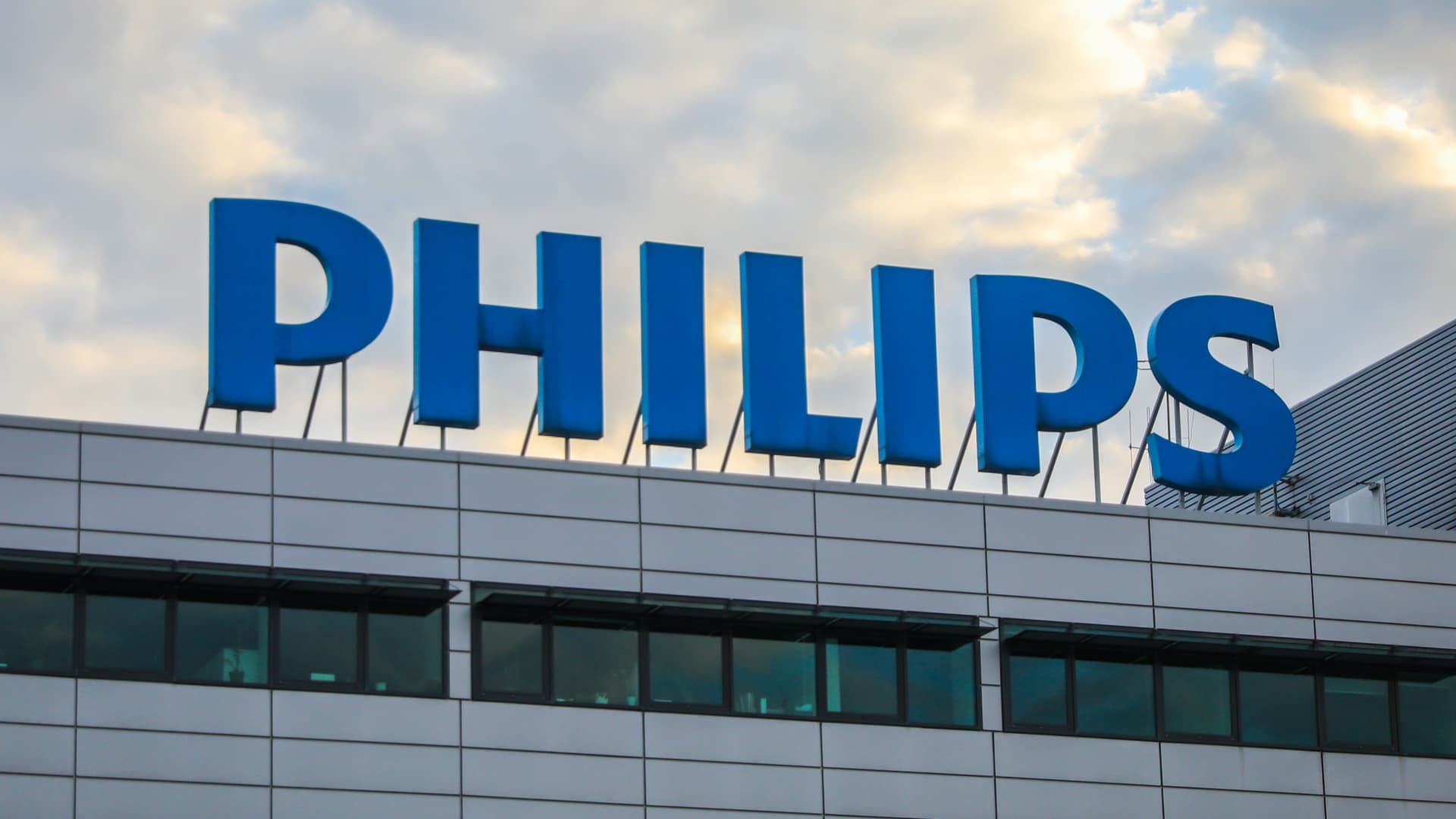The Philips office building in Warsaw, Poland, on July 29, 2021.
Nurphoto | Nurphoto | Getty Images
Shares of Dutch device maker Philips jumped as high as 15% on Monday after the company reported better-than-expected second-quarter earnings.
The stock was last up 14.53% by 3:07 p.m. London time.
Comparable group sales rose 2% to 4.5 billion euros ($4.88 billion), as demand in North America held strong, even as China sales dipped.
The company, which makes medical devices and personal care products such as electronic toothbrushes, also saw its comparable order intake grow 9% over the three-month period.

Philips said the waning China demand was due in part by Beijing’s drive towards self-sufficiency in critical technologies, including within healthcare, amid rising U.S.-China tensions. However, it added that the country remains a “fundamentally attractive growth market.”
CEO Roy Jakobs told CNBC that he was encouraged by the “robust” second-quarter results, adding that he had “strong confidence” that the company would meet its full-year guidance of comparable sales growth of 3-5%.
“Within a challenging macro environment we achieved strong margin improvement, supported by our productivity program, solid operational cashflow due to improved working capital management and comparable sales growth in line with our plan,” Jakobs added in a statement.
The company reported a number of cost savings over the period, including productivity savings of 195 million euros across operating model savings of 57 million euros, procurement savings of 71 million euros, and other programs’ savings of 67 million euros. Since 2022, Philips has embarked in a reorganization set to cut roughly 10,000 jobs, or 13% of Philips’ workforce as of January last year, Reuters reported at the time.
At the same time, Philips said it had agreed to pay $1.1 billion under a settlement related to a Respironics personal injury litigation and the medical monitoring class action in the U.S.
The settlement relates to the company’s faulty sleep apnea devices, which it began recalling in June 2021 due to health concerns.
Jakobs said the settlement brings “finality” to the U.S. case, and will allow the company to return its focus to innovation. Other cases remain ongoing outside of the U.S.

